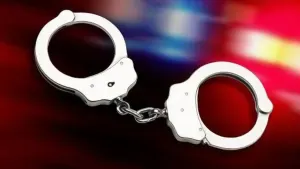MTA board approves fare hike and new expiration rules for LIRR tickets
It's not just higher prices that are frustrating riders — it’s also a new rule that drastically shortens how long tickets remain valid.
Share:
More Stories
2:53

2 people fatally struck in Cranford
6m ago0:35

MTA board votes to raise Metro-North fares in 2026
4h ago0:32

Driver arrested after covering license plate with socks in tunnel toll scheme
11h ago1:23

Main Street in Sayreville reopens after tractor-trailer brings down wires and poles
11h ago0:22

Poughkeepsie crossing guard dies after being hit near school
11h ago1:51

'It might save my life.' Citi Bike rack moved to outside Kent Avenue Trader Joe's
18h ago2:53

2 people fatally struck in Cranford
6m ago0:35

MTA board votes to raise Metro-North fares in 2026
4h ago0:32

Driver arrested after covering license plate with socks in tunnel toll scheme
11h ago1:23

Main Street in Sayreville reopens after tractor-trailer brings down wires and poles
11h ago0:22

Poughkeepsie crossing guard dies after being hit near school
11h ago1:51

'It might save my life.' Citi Bike rack moved to outside Kent Avenue Trader Joe's
18h agoCommuters across Long Island are bracing for major changes to their daily travel routines, after the MTA board voted Tuesday to raise fares and implement stricter ticket expiration policies.
Under the approved plan, Long Island Rail Road fares will increase by an average of 4.4% starting in January. But it’s not just higher prices that are frustrating riders — it’s also a new rule that drastically shortens how long tickets remain valid.
Currently, both mobile and paper tickets are good for up to 60 days after purchase. But beginning next year, all LIRR tickets will expire at 4 a.m. the day after they’re bought — meaning that unused tickets could become worthless in just hours if plans suddenly change.
“That’s pretty annoying,” said Kamryn Evans, of Elmont. “I keep my tickets if I don’t use them — if work is canceled and I bought my ticket that morning.”
Christina Falcone, of Franklin Square, shared a similar concern. “I feel like they should last longer,” she said. “Some people don’t use them right away and they just want to buy them.”
MTA officials say the tighter expiration window is intended to reduce fare evasion. MTA Chairman and CEO Janno Lieber said the agency is targeting riders who intentionally hold onto tickets to reuse them if conductors fail to check during a trip.
“Part of our goal here is to get rid of the creeping, opportunistic fare evasion,” Lieber said. “The goal is to say, in one ride cycle people are using the tickets they purchased — they’re not waiting to hold on to them until the next time they come into the city.”
The agency originally proposed an even stricter expiration limit of just four hours for mobile tickets, but backtracked following strong rider opposition.
Along with the fare hike and expiration change, the on-board surcharge — the penalty for waiting to buy a ticket on the train — will increase by $2. Riders will still be required to activate their ticket before boarding or face the additional fee.
In a move aimed at helping families, the MTA also announced plans to expand its $1 Family Fare program to include children up to 17 years old. Currently, it only applies to those 5–11.
The full set of changes is scheduled to take effect in January.
More from News 12
0:41

Hazing incident investigated at FDNY fire house in Williamsbridge

Beading Hearts moms share healing and hope on WUSB podcast
0:15

Pequannock teacher accused of sexually assaulting student
2:53

2 people fatally struck in Cranford
0:37

Reports of active shooter temporarily locks down Joint Base McGuire-Dix-Lakehurst
1:34
